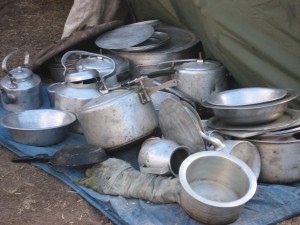I have just finished reading ‘The Help’ by Kathryn Stockett.
Set in the early 1960s in Mississippi, it is the story of the relationship between black women working in domestic service and their white employers. It’s a story of women and children, as men appear only in the background and the providers of home, money and someone with whom to go to parties, but not much more.
 Told through the eyes of its three main characters in separate first person narratives, it was a compelling, if not always easy, read. The book was first recommended to me by a South African friend who said that, although the novel was set in the US, it presented a recognisable echo of South African social history, both during the same period, and even more recently.
Told through the eyes of its three main characters in separate first person narratives, it was a compelling, if not always easy, read. The book was first recommended to me by a South African friend who said that, although the novel was set in the US, it presented a recognisable echo of South African social history, both during the same period, and even more recently.
When I started to read I feared that I would not get on well with the novel as the first section is in the voice of Aibeleen, heavily idiomatic and southern. Writing dialect is a tricky business. The author wants to give each character an authentic and true voice because that conveys so much about the personality of the protagonists, but as a reader I dislike being tripped up by trying to work out the sense in each non standard English sentence. But I gradually became accustomed to it, as it became less pronounced once the tone had been established.
I have no experience of ever having had ‘Help’ at home; my only small brush with it was when I was a student living in a university hall in France, and used to make a point of being out when the cleaning lady came round. I simply couldn’t bear to stand and watch her work. So I have no idea of how one would establish a working relationship with a maid; the mutual mistrust shown in the novel does have an uncomfortably appropriate feel.
The extra ordinary aspect of the situation set up in the novel is that white families were prepared to have maids assume the main responsibility for looking after their children and cooking their meals and yet still subscribed to the belief that it was more sanitary for them to have separate toilet facilities because of their special black diseases.
At the same time the maid was privy to all the details of her employers’ domestic life, while the white family have no notion of the maid’s life, and it would seem not a jot of curiosity either.
In each domestic microcosm, Kathryn Stockett mirrors the inequalities of Mississippi society that in that period were about to be turned upside down by the Civil Rights movements, although events such as the lunch counter protests and the March on Washington are only mentioned sideways, as when Aibelene tells her charge stories about Martian Luther King the green man from outer space who’s just as good as anyone else.
We are always clear exactly what is at stake for each of the characters as they collaborate on an anthology of stories about the maids’ experiences in their jobs; the fear of physical violence against the , and of being socially ostracised for Skeeter, the white would-be writer. They are engaged in a dangerous enterprise; that of writing the truth in a society that doesn’t want to see it, and from this comes a great deal of risk and tension. Who knows what? Has anyone spotted them talking together? Could anyone have taken the drafts? It kept me turning the pages fearing for them and their book.
As a reader and a writer I enjoyed the fact that the drama circles around the acts of writing and of storytelling. It is therefore very satisfying that each of the trio finds extra strength for their lives ahead after they have completed their book.
Do give it a go.

